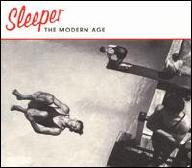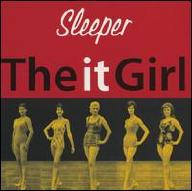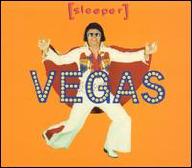Sleeper was founded by Louise Wener (vocals, guitar) and Jon Stewart (guitar), with Andy Maclure (drums) and Diid Osman (bass) rounding out the initial lineup. Wener and Stewart met while studying politics at school in Manchester, England. Relocating to London, the two recruited Osman and Maclure and began playing Wener's original songs. The group made its debut in 1993, which led to a series of positive reviews in the British music weeklies. By November of 1993, they had released the independent single "Alice in Vain." In February 1994, the band released "Swallow," which charted in the Top 100; the following May, "Delicious" was released and became a number one independent single. Also in May, Sleeper supported Blur on the London band's enormously successful Parklife tour.
In February 1995, Sleeper released their debut album Smart, which entered the U.K. album chart at number five and the independent chart at number one; it would be certified silver in four months. Smart was released in the U.S. in March to positive reviews, but it failed to duplicate the band's British commercial success. In May of 1996, Sleeper released their second album, The It Girl. Thanks to the singles "What Do I Do Now?," "Sale of the Century," and "Nice Guy Eddie" -- the last two reached number ten -- The It Girl became Sleeper's biggest hit. The group also received attention for their cover of Blondie's "Atomic," recorded for Trainspotting after Blondie denied permission for the original to be used in the film.
Sleeper quickly followed The It Girl with Pleased to Meet You in October 1997, with Chris Giammalvo on bass as a replacement for Osman. The album was certified silver and generated two Top 40 hits, but the group soon disbanded. Wener turned to writing, publishing a memoir called Different for Girls in 2010.
Joined by bassist Kieron Pepper, Sleeper reunited for a Brit-pop festival in 2017, a one-shot gig that spawned a subsequent tour in 2018. Soon the band headed into the studio with their old producer Stephen Street and recorded The Modern Age, which appeared in April 2019. In 2021, they released This Time Tomorrow, composed of previously unreleased material from past recording sessions, including a song featuring backing vocals by George Michael. ~ Stephen Thomas Erlewine & Paul Simpson, Rovi


















